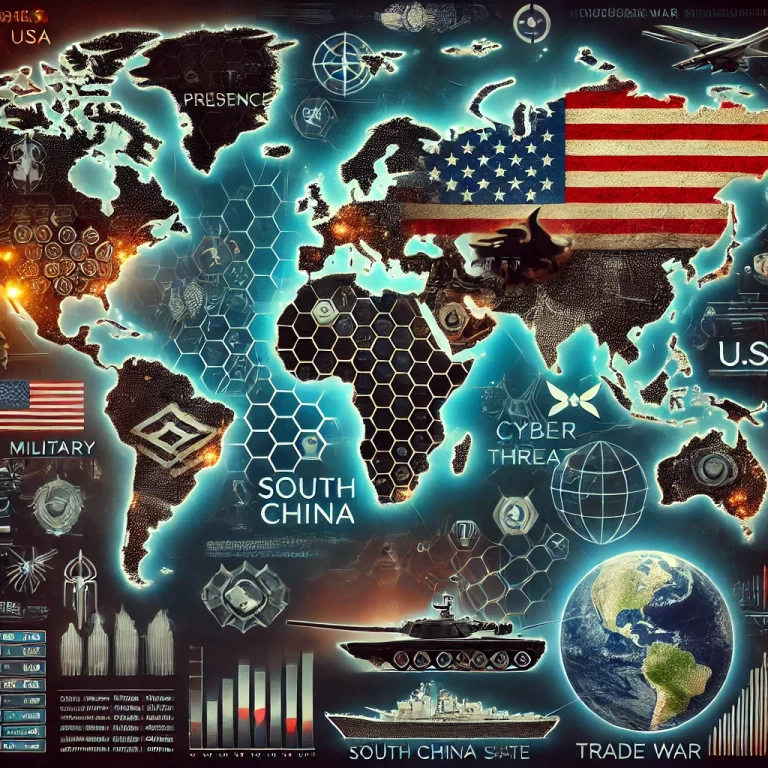
India’s Democracy: Navigating Nationalism’s Impact on Global Dynamics
India's democratic landscape, characterized by societal polarization, fervent nationalist discourse, and heightened divisions between the ruling party and the opposition, bears both domestic and international ramifications
India’s democracy has witnessed notable shifts in recent years, largely propelled by the ascent of populist and nationalist movements spearheaded by the Bharatiya Janata Party (BJP) under the leadership of Prime Minister Narendra Modi. This surge of Hindu nationalism has garnered international scrutiny, prompting discussions about its compatibility with democratic principles and its ramifications for global democratic alliances. This article delves into the key drivers, challenges, and implications of Hindu nationalism on India’s democracy, emphasizing the necessity for nuanced discourse and consensus-building to safeguard democratic values while addressing nationalist sentiments.
The Rise of Hindu Nationalism in India
Since the late 1990s, Hindu nationalism has increasingly influenced India’s political landscape, with the BJP emerging as its primary proponent. The BJP, a right-wing political entity, has played a pivotal role in advancing Hindu nationalist ideologies. Prime Minister Narendra Modi’s leadership has further propelled this agenda, shaping the trajectory of Indian politics significantly.
Key Actors and Dynamics
India’s democratic fabric and its impact on democratic alliances have become focal points of discussion. The ascendancy of Hindu nationalism, championed by the BJP and Prime Minister Narendra Modi, has raised pertinent questions regarding the alignment of India’s democratic processes with Western standards and its implications for democratic partnerships.
Critics contend that the BJP’s endeavors to reshape India have exacerbated political polarization and hindered economic progress. Concerns have also arisen regarding the erosion of trust in India’s institutions and fundamental democratic principles such as the rule of law. Consequently, the trajectory of Indian democracy has become increasingly uncertain, with key democratic institutions perceived as vulnerable.
Moreover, India’s democratic standing vis-à-vis its alliances, particularly with Western nations, has come under scrutiny. Organizations like Freedom House have downgraded India’s democratic status to “partly free,” while the Economist Intelligence Unit has underscored deficiencies in India’s democratic quality. Some argue that India’s democratic regression is part of a broader global trend seeking to alter democratic norms and pluralistic values.
Nevertheless, it is imperative to acknowledge India’s unique socio-cultural milieu and historical backdrop when evaluating its democratic journey. India’s democracy operates within a diverse socio-cultural framework shaped by its rich history and societal dynamics. While disparities may exist between Indian democratic practices and Western ideals, a nuanced approach is crucial in fostering democratic alliances that accommodate India’s unique context.
Current Challenges and Discussions
The challenges confronting India’s democracy, including heightened political polarization and debates surrounding freedom of expression and dissent, are intrinsically linked to its implications for democratic alliances. These challenges underscore the delicate balance India must strike between nationalist fervor and democratic principles, thereby influencing its rapport with other democratic nations, particularly those in the Western hemisphere.
The polarized political climate and debates on freedom of expression and dissent mirror the internal dynamics of India’s democracy, which, in turn, shape its interactions with other democratic entities. How India navigates these challenges and upholds democratic values holds profound implications for its standing within the global democratic community and its ability to forge alliances grounded in shared democratic principles.
The polarized political climate and debates on freedom of expression and dissent mirror the internal dynamics of India’s democracy, which, in turn, shape its interactions with other democratic entities.
Furthermore, apprehensions voiced by India’s allies, particularly in the West, regarding potential conflicts between India’s democratic ethos and Western ideals such as secularism and individual rights, directly correlate with the challenges confronting India’s democracy. These concerns underscore the importance of upholding democratic tenets and adhering to Western democratic norms to foster robust democratic partnerships.
Government Strategies and Resolutions
It is noteworthy that India’s democratic trajectory, alongside its internal dynamics and governmental strategies, carries implications for its democratic alliances. The Indian government, led by Prime Minister Narendra Modi, has taken steps to address concerns raised by allies and opposition factions alike. Emphasizing the significance of upholding democratic values while advancing nationalist aspirations, the government seeks to engage in dialogues and negotiations with diverse stakeholders to strike a balance that preserves democratic principles while addressing the aspirations of its nationalist base.
These strategies and resolutions significantly shape perceptions of India’s commitment to democratic values and its compatibility with Western democratic norms. How India responds to concerns voiced by allies and opposition factions influences its standing within the global democratic community and its relationships with other democratic nations.
Local and Global Implications
India’s democratic landscape, characterized by societal polarization, fervent nationalist discourse, and heightened divisions between the ruling party and the opposition, bears both domestic and international ramifications. These factors impact the functioning of democratic institutions within India and inform discussions surrounding the compatibility of India’s democracy with Western ideals, thereby influencing its democratic alliances.
Domestically, the polarization of society and debates on nationalism, secularism, and individual rights underscore the intricacies of India’s democracy. These factors influence democratic institutions’ efficacy and the overall democratic process within the country, potentially hindering policy formulation and impeding consensus-building on critical issues.
Internationally, discussions revolve around India’s adherence to democratic norms and its compatibility with Western ideals. Allies, particularly in the West, closely monitor developments within India’s democracy and express concerns about potential divergences from democratic norms. These concerns shape perceptions of India’s commitment to democratic values and its compatibility with Western democratic standards, influencing its relationships with other democratic nations.
Conclusion
The rise of nationalist movements in India, led by the BJP and Prime Minister Narendra Modi, has prompted introspection into India’s democratic trajectory and its implications for global democratic alliances. While challenges persist, it is imperative to navigate these complexities with an understanding of India’s unique socio-cultural context.
Meaningful dialogue and consensus-building are essential in upholding democratic values and fostering global cooperation. By acknowledging India’s distinct democratic landscape and engaging in constructive discussions, stakeholders can work towards preserving democratic principles while accommodating diverse societal aspirations.
In conclusion, India’s democracy is at a critical juncture, with the rise of nationalism shaping its domestic dynamics and its relationships with the global democratic community. By embracing India’s uniqueness and fostering understanding and cooperation, stakeholders can forge resilient democratic alliances that transcend ideological differences and uphold democratic principles on a global scale.
_______________________________
Aric Jabari is a Sixteenth Council Fellow



